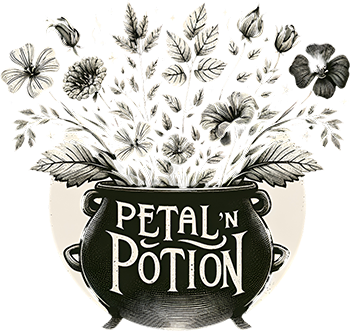W h i t e W i l l o w B a r k
White willow bark (Salix alba) is derived from the bark of the white willow tree.
It has been used for centuries in traditional medicine for its pain-relieving and anti-inflammatory properties and is often referred to as “nature’s aspirin.”
Benefits
- Pain Relief: Known for its ability to alleviate pain, including headaches, muscle pain, and lower back pain.
- Anti-Inflammatory: Contains compounds that reduce inflammation, making it useful for conditions like arthritis and rheumatism.
- Fever Reduction: Traditionally used to reduce fevers.
- Antioxidant Properties: Rich in antioxidants that help protect cells from damage caused by free radicals.
- Support for Cardiovascular Health: May improve blood flow and reduce the risk of blood clots.
Active Compounds
- Salicin: The primary active compound in white willow bark, which is metabolized into salicylic acid in the body, providing pain relief and anti-inflammatory effects.
- Flavonoids: Provide antioxidant benefits and contribute to the overall health-supporting properties of the bark.
- Tannins: Contribute to the astringent and anti-inflammatory effects.
- Polyphenols: Antioxidants that help protect cells from oxidative stress.
Who Should Avoid This
- Pregnant and Nursing Women: Due to potential risks, it is best to avoid during pregnancy and breastfeeding.
- Individuals with Aspirin Allergies: Those allergic to aspirin or other salicylates should avoid white willow bark.
- People with Gastrointestinal Issues: Those with ulcers, gastritis, or other gastrointestinal conditions should use it cautiously.
- Individuals with Bleeding Disorders: Due to its blood-thinning properties, it may increase the risk of bleeding.
Warnings
While white willow bark offers several health benefits, there are important precautions and potential side effects:
- Gastrointestinal Issues: Can cause stomach upset, nausea, or gastrointestinal bleeding in some individuals.
- Allergic Reactions: May cause allergic reactions, especially in those allergic to aspirin or other salicylates.
- Pregnancy and Breastfeeding: Not recommended due to potential risks; consult with a healthcare provider.
- Bleeding Disorders: Can increase the risk of bleeding and should be used with caution by those with bleeding disorders or taking blood-thinning medications.
Usage Guidelines
White willow bark is typically used for short-term relief of acute pain and inflammation, rather than long-term treatment. For chronic conditions such as arthritis, it may be used under the guidance of a healthcare professional to ensure safe and effective use. Always consult with a healthcare provider before starting any new herbal supplement to determine the correct dosage and duration for your specific needs.
